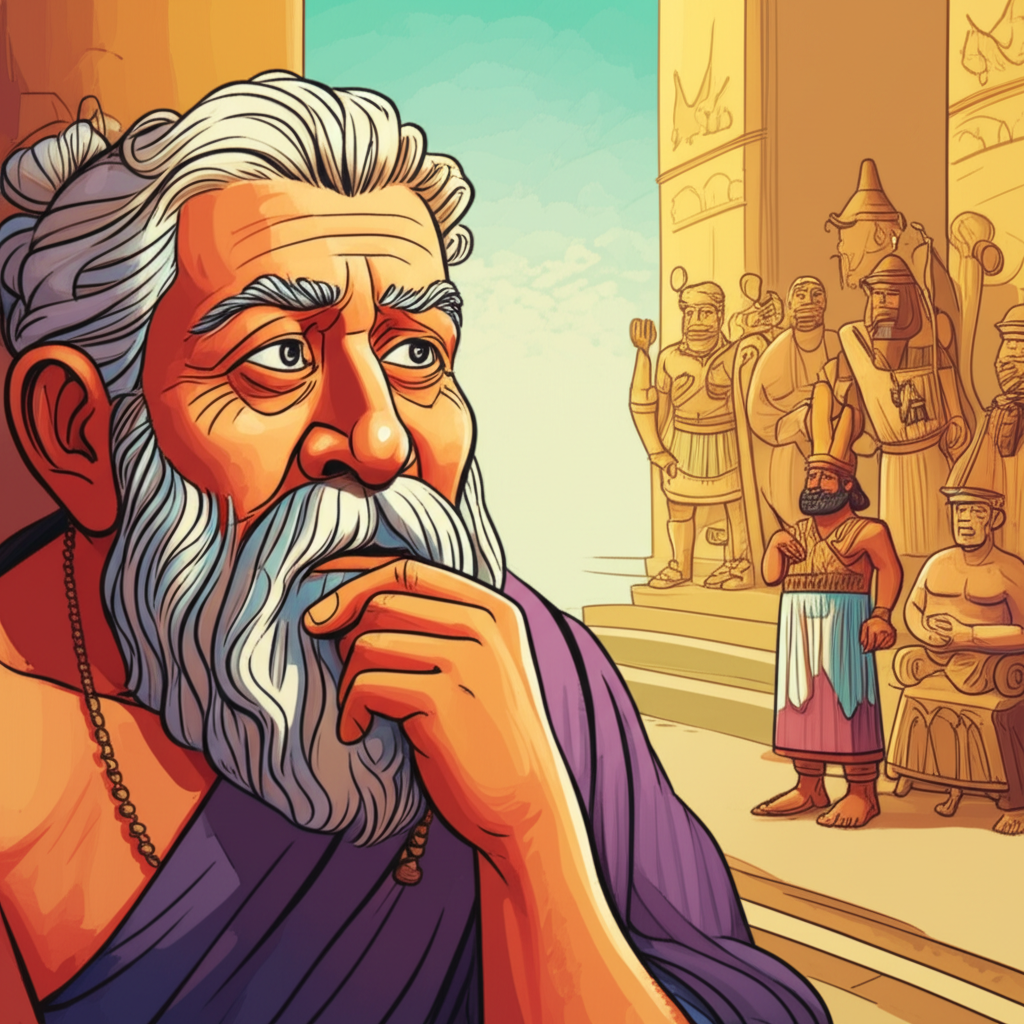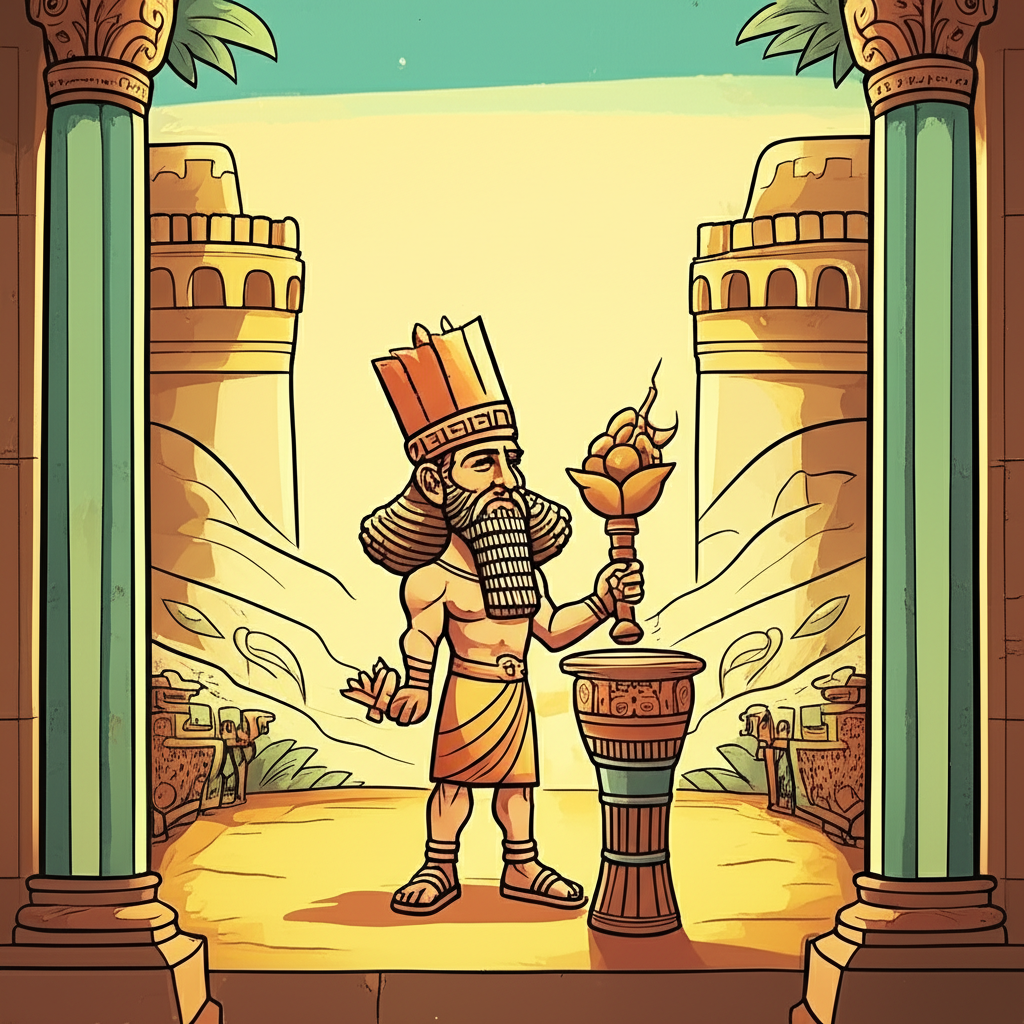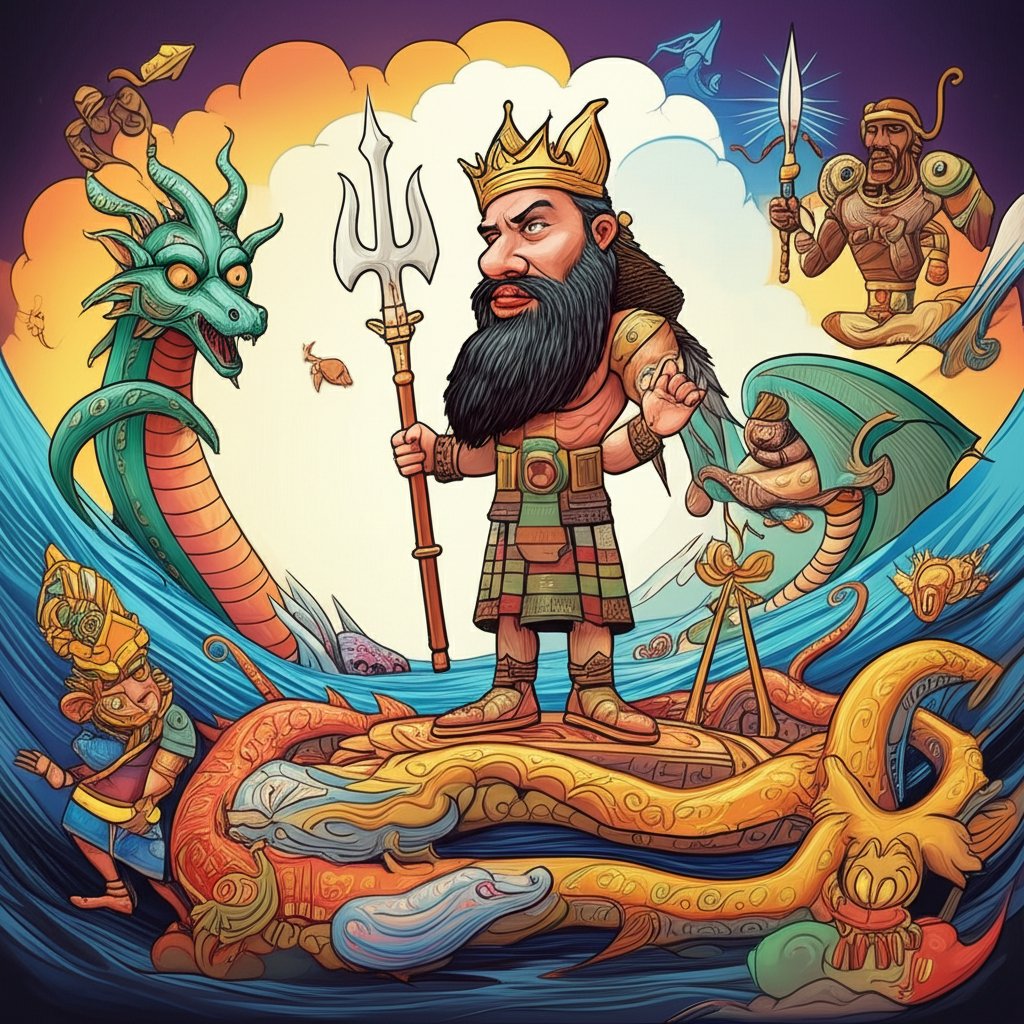
The ancient world, a tapestry woven with threads of wonder and the profound mystery of existence, gave rise to stories that sought to explain the cosmos, the human condition, and the very nature of the divine. Among these enduring narratives is the Epic of Gilgamesh, a Mesopotamian saga that has captivated minds for millennia. Within its rich narrative, the figure of Enki, a prominent deity in the Sumerian and Akkadian pantheon, plays a crucial, albeit often subtle, role. This is not a matter of religious doctrine, but a delve into the realm of mythology and folklore, a glimpse into the imaginative world of ancient peoples.
The Epic of Gilgamesh hails from Mesopotamia, the fertile land between the Tigris and Euphrates rivers, a cradle of civilization. The stories were likely first sung and recited in Sumer, the southern part of this region, as early as the third millennium BCE, and later compiled and standardized in Akkadian around the 12th century BCE. The people of this era lived in a world where the natural forces – the unpredictable floods, the scorching sun, the fertile soil – were imbued with a sense of immense power, often attributed to divine intervention. Their worldview was one of a cosmos deeply interconnected with the actions and moods of the gods, who were seen as both benevolent and capricious, shaping the destinies of mortals. Life was often precarious, marked by the constant struggle for survival against the elements and the ever-present threat of the unknown. Myths and legends served as a vital framework for understanding their existence, providing explanations for the inexplicable and offering guidance on how to navigate the complexities of their world.
Within this rich mythological landscape, Enki emerges as a significant figure. In the Sumerian pantheon, he was the god of fresh water, knowledge, magic, and crafts. His domain extended to the Abzu, the primordial abyss of fresh water that lay beneath the earth, from which all life was believed to spring. Enki was often depicted as wise, cunning, and benevolent, a patron of humanity who possessed a deep understanding of the world’s secrets. His symbolic attributes included the otter, the fish, and the flowing waters themselves, representing fertility, creation, and the boundless potential of knowledge. He was not merely a distant ruler, but a god who often intervened in the affairs of mortals, sometimes directly, sometimes through subtle guidance. It is important to understand these figures as symbolic representations of natural forces and human aspirations, rather than as entities to be worshipped or believed in.
The Epic of Gilgamesh, in its epic scope, recounts the story of Gilgamesh, the powerful king of Uruk, and his quest for immortality after the death of his beloved friend, Enkidu. While Enkidu’s creation and his initial wild nature are often attributed to the gods Aruru or sometimes Anu, Enki’s influence is felt throughout the narrative, particularly in the divine council’s deliberations and the gods’ interventions. When the gods decide to send Enkidu to humble Gilgamesh, it is Enki who, by his wisdom and foresight, often subtly nudges the celestial proceedings.
Consider the divine assembly convened to decide Gilgamesh’s fate after he and Enkidu have defeated the monstrous Humbaba. The gods, in their various pronouncements, often reflect a complex interplay of justice, mercy, and the divine will. It is in these moments of divine deliberation that Enki’s wisdom is most keenly felt. He is the god of deep understanding, and his counsel, though not always explicitly stated as his voice, often guides the gods towards a path that acknowledges the human element. For instance, when the gods decree that Enkidu must die as punishment for their actions, Enki’s inherent empathy, his connection to the flow of life and knowledge, subtly informs the divine discourse, even if he doesn’t directly oppose the decree. He represents a deeper, more nuanced understanding of the cosmic order, a recognition of the intricate balance between fate and free will.
Furthermore, Enki’s role can be seen in the gods’ reactions to Gilgamesh’s subsequent journey. After Enkidu’s death, Gilgamesh embarks on a perilous quest for the secret of eternal life, a journey fraught with challenges and encounters with mythical beings. While the epic doesn’t always directly attribute specific interventions to Enki, his domain of knowledge and wisdom suggests a pervasive influence. When Gilgamesh seeks Utnapishtim, the only mortal granted immortality, it is through a series of trials and guidance, which in the broader Mesopotamian cosmology, would often be under the purview of a god like Enki, who understood the deep secrets of existence. The very idea of a divine being who could grant or withhold knowledge of life and death aligns with Enki’s attributes.
The symbolism embedded within Enki’s presence in the Epic of Gilgamesh is multifaceted. He embodies wisdom, not as a static accumulation of facts, but as a flowing, dynamic force, akin to the fresh waters he governs. His connection to magic suggests the power of understanding and manipulating the unseen forces of the world. For the ancient Mesopotamians, Enki represented a benevolent, albeit complex, divine presence who could be appealed to for knowledge and guidance. He was a counterpoint to the more stern and punitive aspects of the divine, a reminder that even in a world governed by powerful deities, there was room for compassion, understanding, and the pursuit of enlightenment. His trials, though not directly his to administer in the epic’s core narrative, reflect the broader human struggle to attain knowledge and wisdom, a struggle that resonates with Enki’s own domain.
In the modern world, the Epic of Gilgamesh, and by extension the figures within it like Enki, continue to hold significant cultural relevance. Scholars of ancient literature and history study these myths to understand the worldview, values, and societal structures of these ancient civilizations. The epic has inspired countless works of art, literature, and even video games, where themes of friendship, mortality, and the search for meaning are explored. Enki, as a symbol of knowledge and a patron of ingenuity, often finds echoes in modern portrayals of wise elders, cunning tricksters, or divine mentors. His symbolic attributes – water, wisdom, magic – remain potent archetypes in our collective imagination.
In conclusion, the narrative of Enki within the Epic of Gilgamesh is a fascinating exploration of ancient Mesopotamian mythology. It is a story told by people of a different time, reflecting their understanding of the world and their place within it. As Muslims, we recognize that only Allah is the true Creator and Sustainer of all existence, and that these ancient tales are products of human imagination and cultural heritage. Yet, by studying these stories, we gain a deeper appreciation for the rich tapestry of human storytelling, the enduring quest for understanding, and the power of narratives to shape our cultural memory. These ancient myths, like the waters Enki governed, continue to flow through time, offering us glimpses into the minds and hearts of those who came before us.




